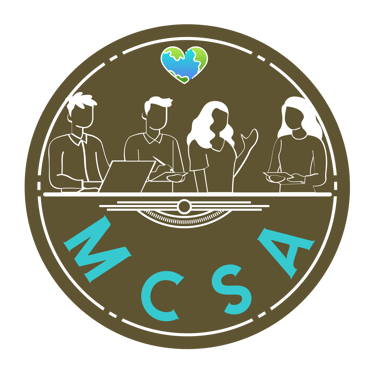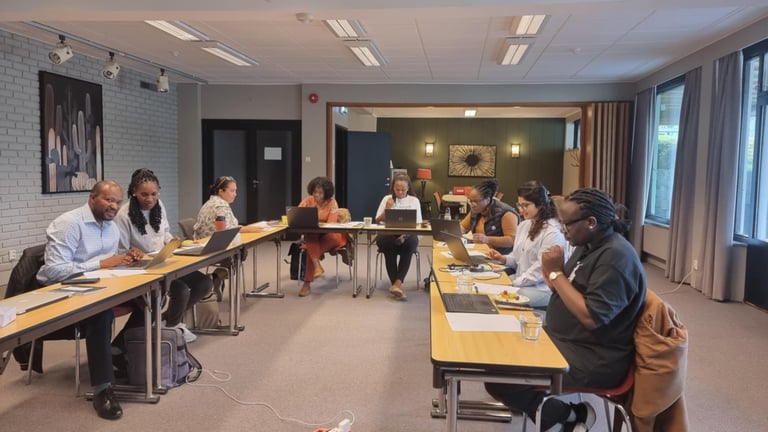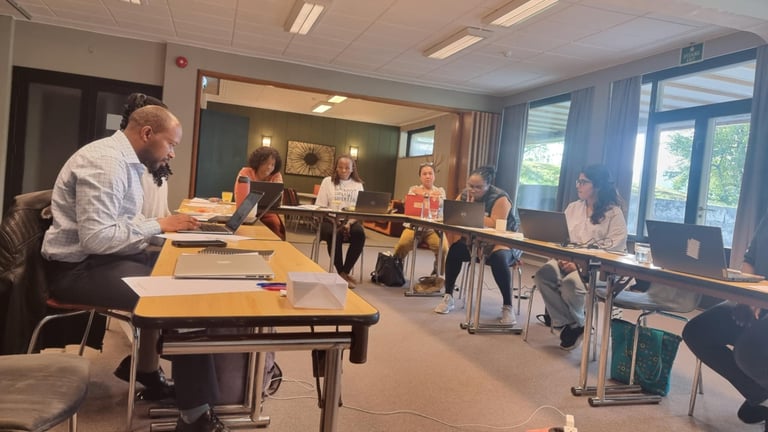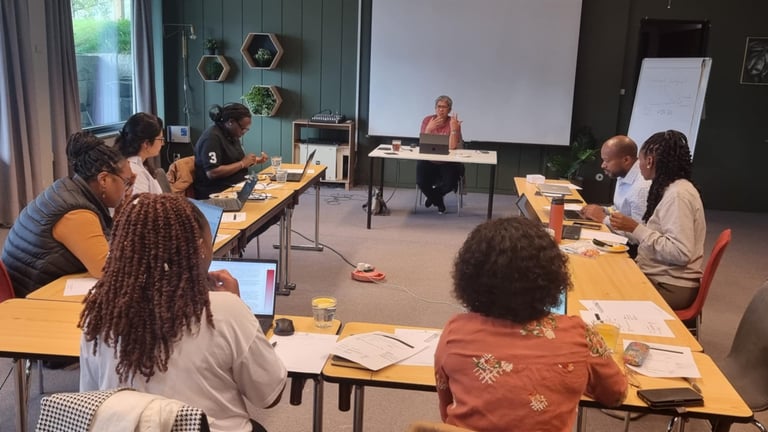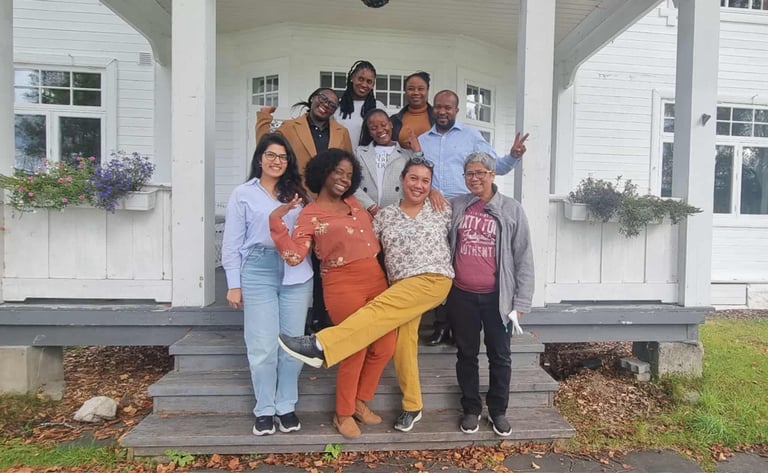UiO Research Group Urged to Consider Use of Citizen Science Approaches, Methodologies, & Typologies in Projects
The Migrant Citizen Science Association (MCSA), led by Chair Love Malundo with team member Macel Ingles, was invited to present at the University of Oslo’s Research Ethics Group seminar in Noresund, Norway (Sept. 18–19, 2025). Malundo urged researchers to integrate citizen science approaches into their projects, highlighting how community participation strengthens research quality, inclusivity, and societal impact. Researchers welcomed the approach, noting its potential to expand data collection, bring in local knowledge, and foster community ownership of research.
NEWS
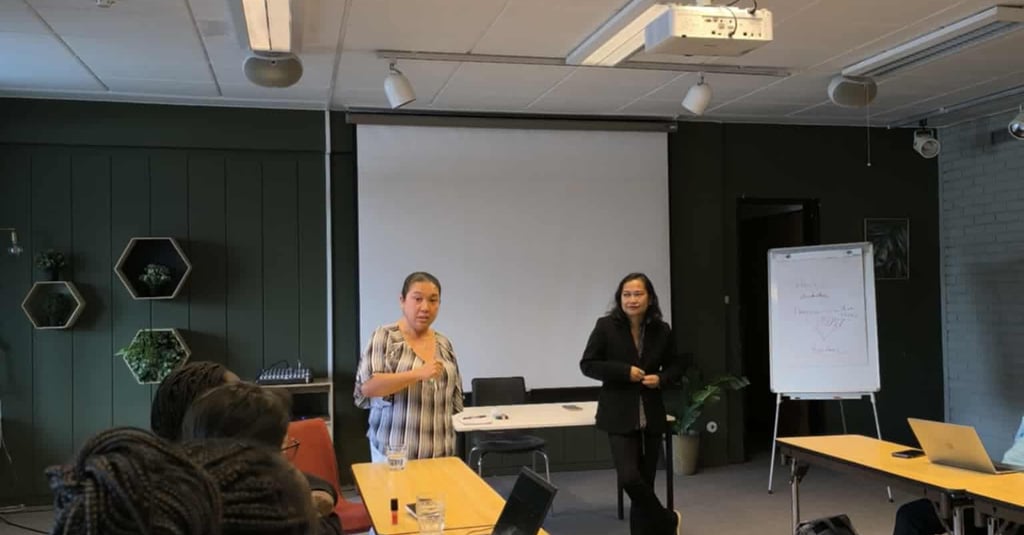

Citizen science advocates from the Migrant Citizen Science Association (MCSA) called on seven researchers from the Research Ethics Group of the Center for Medical Ethics at the University of Oslo (UiO) to consider use of citizen science approaches in their projects that they will be undertaking for the university.
The research ethics group gathered in a group seminar in Noresund, about an hour away from Oslo in Norway from September 18-19, 2025 as part of its thrust to examine the unit´s internal processes in order to enhance output through skills training and development.
In the seminar, the Migrant Citizen Science Association was invited to present the citizen science approach to research and the association urged the researchers to look into how the approach can enhance the quality of their research and put community inclusion in research in practice.
In her presentation, Migrant Citizen Science Association (MCSA) Chair Love Malundo called on the researchers to add citizen science approaches to their toolkit when undertaking research projects.
“Citizen science methodologies, approaches and typologies provide a robust framework that validates public participation in research, strengthens data integrity, promotes inclusivity, and generates transformative impacts on society and policy,” Malundo explained.
In presenting the citizen science toolkit, Malundo provided the researches a whole array of approaches(perspectives), methodologies (framework or strategies) and typologies (categories) that they can choose to undertake their projects.
She however clarified while the citizen science approach is not entirely distinct and separate from other approaches, its emphasis on the citizen role and contribution in knowledge production is what sets it apart from all the other approaches.
The citizen science toolkit presented by the MCSA were also put to good use when the researchers were tasked to do a practical exercise of pitching a project choosing framework and methodologies that they can apply to Noresund´s particular conditions.
A pitch from the different groups that worked on specific Noresund environmental concerns were presented that showcased their choice of approaches and description of their planned projects for Noresund. An open discussion on the presentations followed with researchers reflecting on their experiences using the citizen science approaches.
“I found the citizen science approach very engaging as it helped me realise that citizen science has always been a part of our societies. Working with the community for the community has long been embedded into the health of other sectors in Nepal,” Poojah Aryal, UiO researcher told MCSA.
She also said that citizen science has “the potential to enhance research projects by expanding data collection, bringing in local knowledge and making it more grassroot-oriented.
Love and Macel discussing with the team how their ‘Blueprint of Noresund’ case study aligns with citizen science approaches, methodologies, and typologies.
Cynthia Wangamati, also UiO researcher said she found the citizen science approach, “insightful” and that the approach made her “think about levels of engagement for the different stakeholders.”
She also believes that citizen science approach to research “will improve (project) proposal as it will have a broad societal impact -relevance for the community in addition to scientific relevance.
“There will (also) be more community ownership of the project,” she added.
MCSA is dedicated to providing training and education for citizen scientists, facilitating communication and discussions, and promoting an atmosphere of openness and respect to encourage the inclusion of diverse people.
In order to promote citizen science, MCSA has identified specific goals that include encouraging and supporting migrants to actively participate in scientific research, building a network of citizen scientists and researchers, increasing public awareness of migrants' contributions to science, and advocating for policies and funding that support citizen science initiatives.
The MCSA also aims to contribute to the development of a European-wide citizen science movement and to educate policymakers and other stakeholders on the importance of citizen science initiatives.
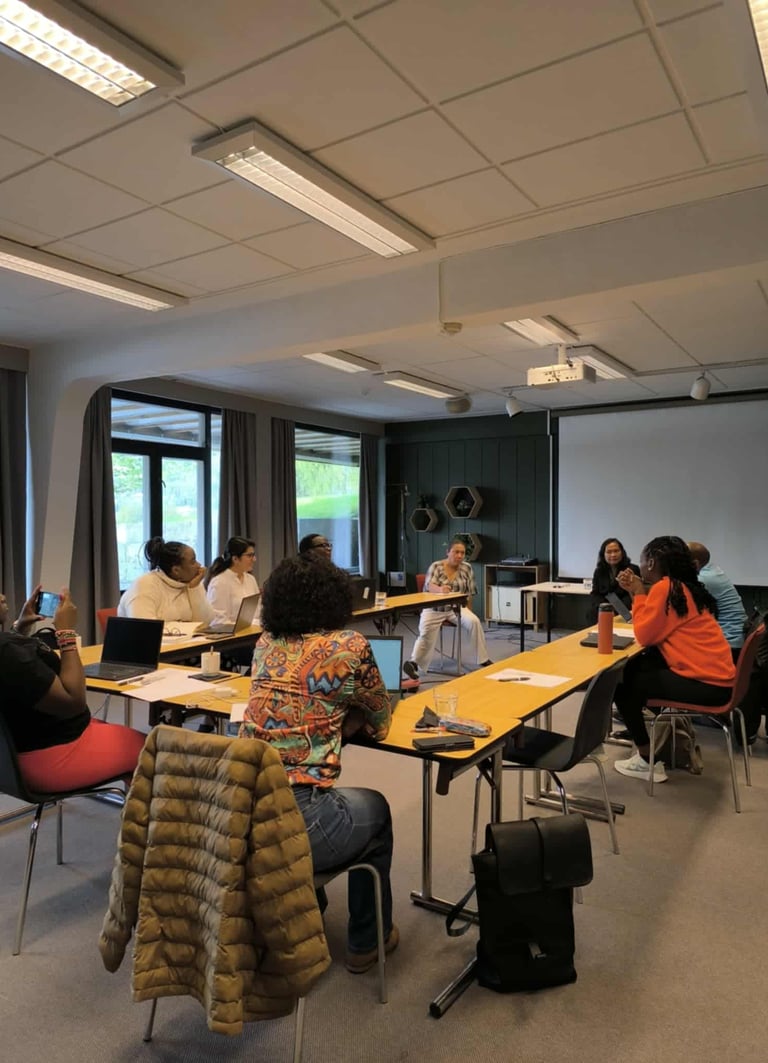

Cynthia shared her thoughts on their presentation, highlighting that "the community truly has ownership of the project.”
